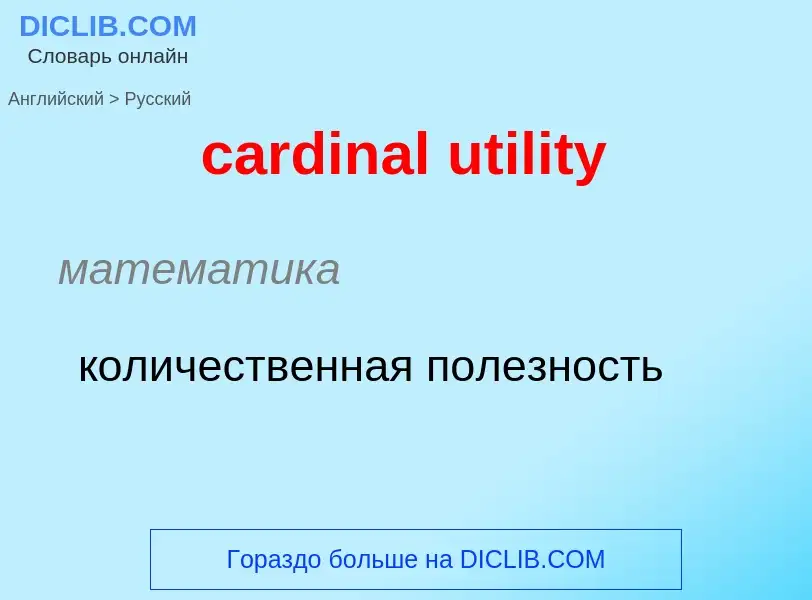Перевод и анализ слов искусственным интеллектом ChatGPT
На этой странице Вы можете получить подробный анализ слова или словосочетания, произведенный с помощью лучшей на сегодняшний день технологии искусственного интеллекта:
- как употребляется слово
- частота употребления
- используется оно чаще в устной или письменной речи
- варианты перевода слова
- примеры употребления (несколько фраз с переводом)
- этимология
cardinal utility - перевод на русский
математика
количественная полезность
Определение
Википедия
In economics, a cardinal utility function or scale is a utility index that preserves preference orderings uniquely up to positive affine transformations. Two utility indices are related by an affine transformation if for the value of one index u, occurring at any quantity of the goods bundle being evaluated, the corresponding value of the other index v satisfies a relationship of the form
- ,
for fixed constants a and b. Thus the utility functions themselves are related by
The two indices differ only with respect to scale and origin. Thus if one is concave, so is the other, in which case there is often said to be diminishing marginal utility.
Thus the use of cardinal utility imposes the assumption that levels of absolute satisfaction exist, so that the magnitudes of increments to satisfaction can be compared across different situations.
In consumer choice theory, ordinal utility with its weaker assumptions is preferred because results that are just as strong can be derived. Cardinal utility shows that the unit we consume can be measured in numbers. It is the less practical form of measuring satisfaction compare to Ordinal utility.



